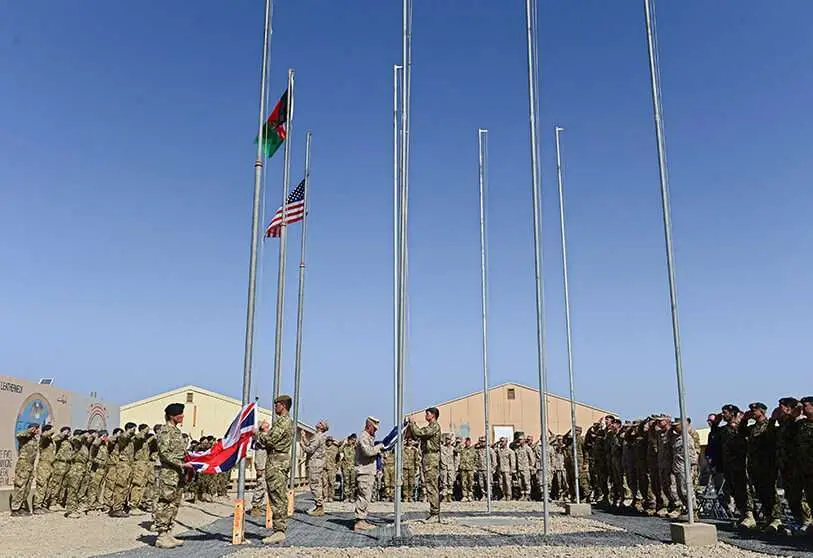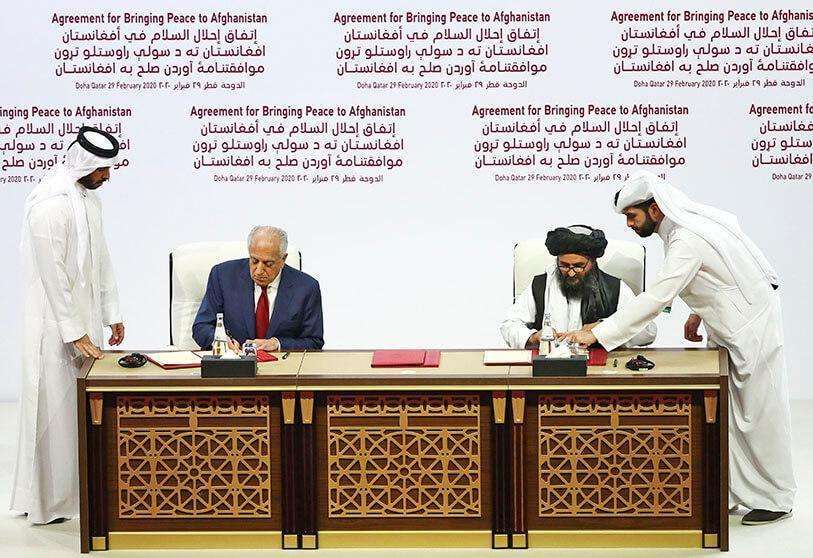Afghanistan is collapsing under the watchful eye of the US and NATO

Afghanistan is living its worst hours in the face of US and NATO passivity. The announcement of the withdrawal of all international troops from the Central Asian country marked the beginning of the end. Since last May, coinciding with the beginning of the withdrawal of the US army, the Taliban launched an offensive throughout the country, which has intensified over the last week. The insurgents have taken control of six provincial capitals in barely a week in the face of the West's inaction, which reiterates its commitment to withdraw all its troops from the country by September.
The United States was fully aware of the consequences of the withdrawal of its troops and the international coalition from Afghanistan. Last June, The Wall Street Journal (WSJ) published a report by US intelligence services which determined that the Afghan government could fall in just six months once the last international troops were withdrawn from the country. According to the WSJ, the intelligence services had so far argued that the Afghan government could hold out for up to two years, but in the wake of rapid developments on the ground, new analysis has shown that the situation in Afghanistan is bleak.

Since that report was made public two months ago, the situation has deteriorated. Negotiations between the Taliban and the government in Kabul are at a complete standstill. Last July, leaders from both sides met again in Doha, Qatar, in an attempt to reach a resolution to the escalating violence in the country, but once again the negotiations remained "inconclusive". Qatari mediator Mutlaq al-Qahtani said the two sides had "barely agreed" to try to "avoid civilian casualties".
Despite the fact that the talks in Doha are dragging on and on, facilitating the Taliban's advance in the country and thereby strengthening their negotiating position, the US has again stressed that "a political settlement is the only path to stability and development in Afghanistan". The US is not prepared to backtrack on its decision to withdraw troops, despite the fact that the seizure of capitals such as Kunduz years ago prompted the US to intervene on two occasions in order to wrest the northern Afghan capital from the Taliban. It now appears that the fall of six provincial capitals in less than a week, including Kunduz, no longer poses a threat.

Pentagon spokesman John Kirby, during a press conference on Monday, and in the face of the increasingly worrying situation in Afghanistan, again made it clear that the US is out of the Central Asian country and that "it's their country to defend now. It is their fight". Along the same lines, Kirby stressed that the Afghan army "has many advantages that the Taliban do not have, and they have to use them". In line with the new policy adopted by the United States in Afghanistan, which involves a "political solution", the US envoy to Afghanistan, Zalmay Khalilzad, has travelled to Doha to "help formulate a joint international response to the rapidly deteriorating situation in Afghanistan".
According to a US State Department press release, Khalilzad will attend several rounds of meetings scheduled over three days with the aim of "pressuring the Taliban to halt their military offensive and bring about a ceasefire". The insurgents are unlikely to give in to US pressure, especially at a time when they have a strong presence throughout the country and have even taken control of some capitals with little resistance, as was the case in the city of Aybak, capital of the northern province of Samangan. Aybak yesterday became the sixth regional capital in the country to fall to the fundamentalists after national forces surrendered to the fighters with little fight.

The Taliban are already talking about the possible seizure of Kabul, something unimaginable before the withdrawal of international troops. Speaking to RIA Novosti, the group's chief spokesman, Zabihullah Mujahid, said that "the decision on an offensive against Kabul will be taken after capturing the other provinces of Afghanistan". "Our forces are advancing at a moderate pace and Mazar-e-Sharif will fall soon," he said. Taliban and Afghan forces are engaged in fighting in at least 11 of Afghanistan's 34 provinces, meaning that roughly half of Afghanistan's territory is either contested or under the control of the fundamentalists. An unprecedented advance that has been underway since last May and has intensified over the past week.
Afghanistan seems destined to live in a maelstrom of violence and instability. History seems to be repeating itself, and after the departure of foreign troops, the Taliban will manage to take over the territory at the expense of the civilian population. The United Nations Children's Fund (Unicef) has reported that 27 children were killed and 136 more injured in the ongoing fighting in the last 72 hours. Despite the worsening of the situation in the Central Asian country, Afghanistan remains alone. Clear proof of this was the departure of US troops from the Bagram base, a withdrawal that was completed with hardly any cover and in an almost furtive manner, with the aim of not offering a sense of defeat on the part of the United States, which after 20 years leaves a country at the mercy of those it overthrew in 2001.










